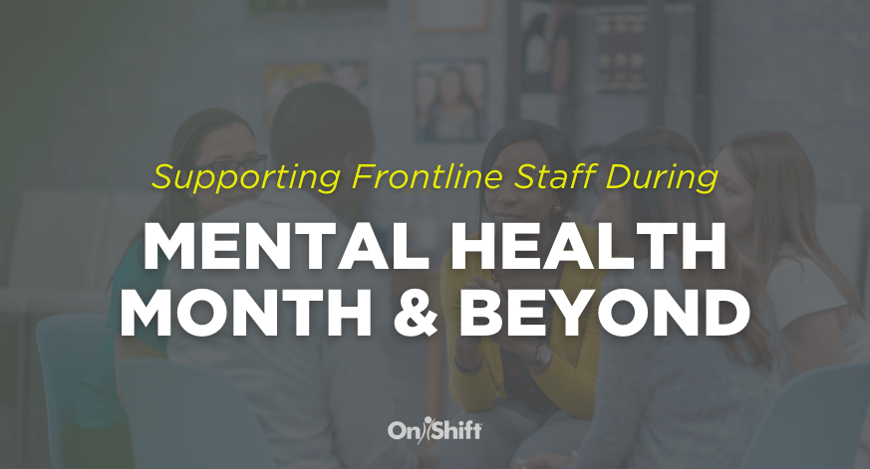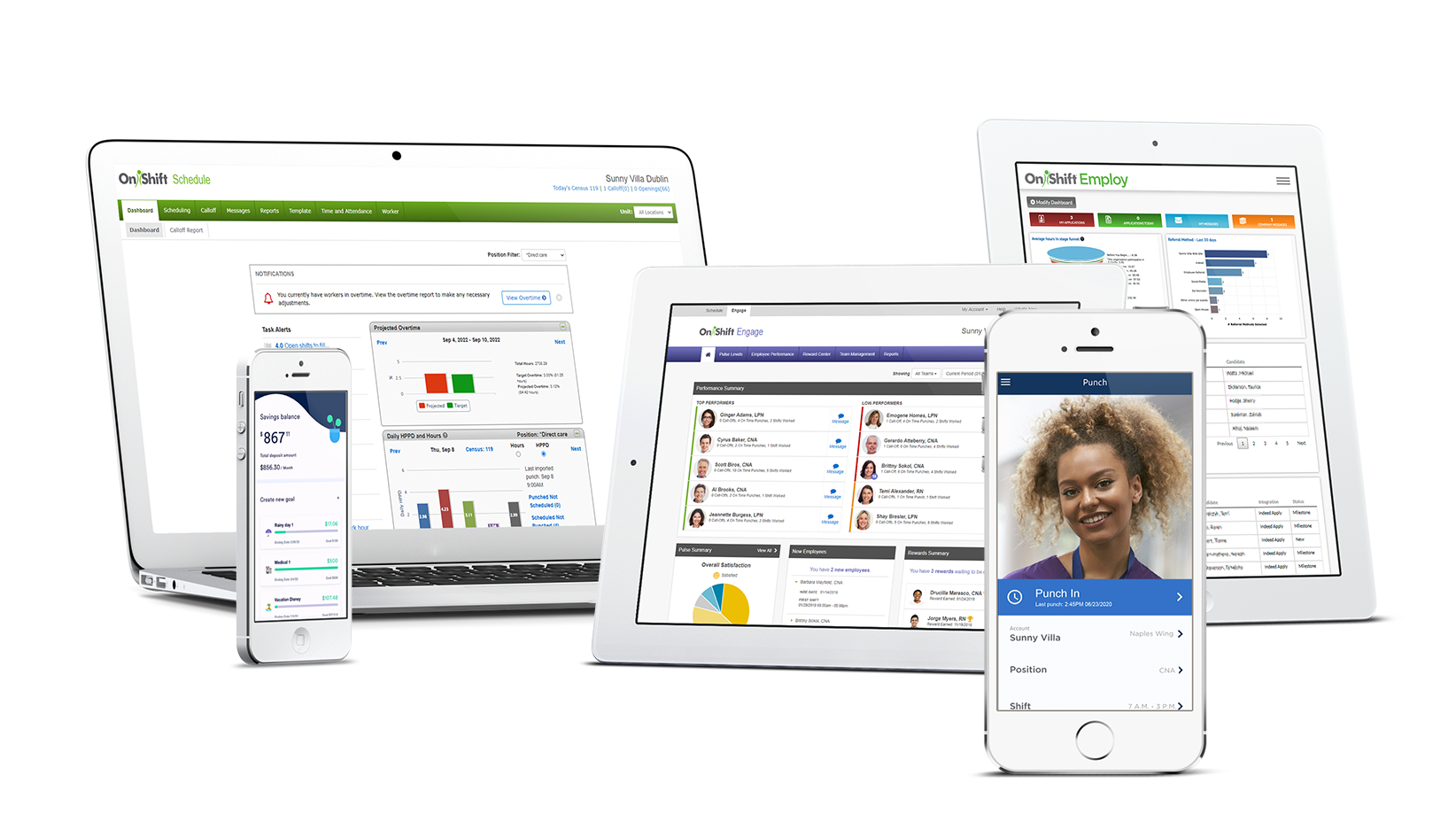May 3, 2021 | Jenna Berris
May 3, 2021 | Jenna Berris
 May is Mental Health Month. And while mental wellness has always been important, it’s become a major focus over the past year as the pandemic has exacerbated symptoms for many, particularly those in healthcare. As Mental Health America (MHA) points out, while many are coping with feelings of fear and uncertainty around the pandemic at home, healthcare workers are witnessing the direct and devastating effects of the virus first-hand each and every day. On top of that, they have been plagued with the worry of potentially bringing the virus into their households.
May is Mental Health Month. And while mental wellness has always been important, it’s become a major focus over the past year as the pandemic has exacerbated symptoms for many, particularly those in healthcare. As Mental Health America (MHA) points out, while many are coping with feelings of fear and uncertainty around the pandemic at home, healthcare workers are witnessing the direct and devastating effects of the virus first-hand each and every day. On top of that, they have been plagued with the worry of potentially bringing the virus into their households.
A recent MHA survey of healthcare workers conducted from June to September of 2020 found:
Additionally, 82% noted they were experiencing emotional exhaustion, something they hadn’t felt prior to the pandemic.
Another report conducted in May and November found that nearly 50% of respondents in skilled nursing, assisted living or independent living communities reported they experienced psychological burden, such as anxiety, that was significant enough to interfere with everyday function. That’s compared to about 20% pre-pandemic.
There is clearly work to be done to support these frontline workers, who have made unimaginable sacrifices throughout the crisis. Here are a few simple ways to promote mental wellness in your communities this month and beyond.
1. Have Candid Conversations
For this year’s Mental Health Awareness Month, MHA’s “You Are Not Alone” campaign promotes “acknowledging that it’s okay to not be okay through NAMI’s blog, personal stories, videos, digital toolkits, social media engagements and national events.”
Share their resources with your staff and print out a few of their graphics to display around the community. Organize an optional forum where employees can share their struggles with one another to lessen some of the stigma around mental health challenges. You can download their planning guide here for other ways to spread awareness.
Along these lines, reiterate your EAP program and encourage employees to reach out to their managers for any hardships they might be experiencing – big and small.
2. Promote Mindfulness
Time and time again, practicing mindfulness and meditation has been proven to reduce anxiety and depression while increasing mental wellbeing. Consider working mindfulness or breathing sessions in your employees’ daily work routines. You can either give each employee five minutes a day to step away and meditate or make it a group exercise. There are plenty of free apps you can download to lead these sessions.
3. Ask For Feedback
How can you learn the most meaningful ways to support your employees? By simply asking them. Managers can do so during their one on ones or via employee surveys, which allow them to quickly assess staff well-being. The questions can and should be simple: “How has your mental health been lately?” and “What can your employer do to better support you right now?” Many providers have used the custom surveys in our employee engagement software, OnShift Engage, to give their staff an outlet to voice concerns. Employees can even respond anonymously if they wish. Collecting this information allows you to build impactful programs and have more timely conversations with each staff member.
A Focus On Mental Wellness Is Here To Say
Unfortunately, the long-term psychological effects of the pandemic won’t be fully understood for some time. As Kimberly Marselas reports for McKnight’s Long-Term Care News, “mental health professionals warn that easing out of crisis mode will likely allow the delayed and incredibly varied effects of all that trauma to surface.”
That means, that mental health support for frontline workers must be a continued effort, one that extends far beyond Mental Health Month. Tom Gresham for Argentum sums it up best, “Experts believe the new emphasis on mental health for senior living workers will not fade when the pandemic does but instead will lead to an enduring, strengthened appreciation for the importance of resources that help workers tend to their emotional lives—a new normal for employee mental health.”
Subscribe to the OnShift Blog
Recent Posts
Categories
About Jenna Berris
Jenna Berris is a Content Marketing Manager for OnShift.
See for yourself why thousands of providers rely on OnShift’s innovative software for recruitment, hiring, workforce management, pay and engagement. Request your personalized demo today.
